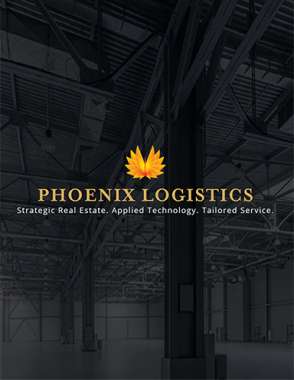Online Grocery Popularity Presents Ongoing Supply Chain Challenges

With online grocery shopping here to stay, grocery retailers now must establish long-term fulfillment solutions that will enable them to meet omnichannel shopping demands profitably.
Omnichannel Fulfillment Capabilities
Most grocery sellers found themselves ill-prepared for the dramatic shift to online shopping that occurred due to the COVID-19 pandemic, and these businesses have spent the last year and a half struggling to implement affordable and effective omnichannel fulfillment capabilities.
Before 2020, grocery delivery was primarily a luxury found in large metropolitan areas, and only about 4% of grocery shopping happened online.
Now, online grocery is expected to double its market share by 2025.
With online grocery shopping here to stay, grocery retailers now must establish long-term fulfillment solutions that will enable them to meet omnichannel shopping demands profitably.
Amid this industry upheaval, shortages in the food supply chain present additional challenges for grocery sellers.
Ongoing Food Supply Chain Issues
Here are some of the supply chain issues currently hampering U.S. grocery stores and their efforts to improve e-commerce fulfillment capabilities:
- Outdated supply chains. The COVID-19 pandemic highlighted the rampant inefficiencies in the U.S. and global food supply chains. Grocery stores couldn’t stock meat as meat processors destroyed millions of animals they couldn’t properly process and distribute. Farmers burned crops while grocery stores had trouble sourcing fresh fruit and vegetables. For the last 18 months, food supply chain stakeholders have focused on creating less wasteful supply chains that can get food products where they need to go quickly—but that work is ongoing, and the problem is far from resolved.
- Restaurants have reopened. As restaurants shut their doors to flatten the curve, the food supply chain initially failed to redirect that food supply to another user. Eventually, restaurant suppliers began to work with the grocery distributors to get food into the hands of consumers and food pantries where it was needed. However, with restaurants open again, grocery stores and restaurants are now in competition for available food products.
- Labor shortages. A labor shortage currently plagues the food supply chain from the farm to the grocery store checkout line. The U.S. agricultural sector relies heavily on migrant workers to harvest crops, and border restrictions due to COVID-19 and shifting immigration policies have left farms short-handed at harvest times. Manufacturers of consumer-packaged goods (CPG) have also been struck by a labor shortage, with many failing to fulfill orders to their grocery supply chain customers. Essential, public-facing grocery positions have also been tough to fill because of the risks posed by COVID-19, leaving grocery stores strained as well.
- Material shortages. The frozen food and CPG sectors have struggled to reliably source raw materials, leading to shortages in everything from frozen waffles to certain beverages. These constant stockouts of popular products have created challenges for grocery retailers in the store in the form of empty shelves. Conversely, poorly implemented e-commerce technology may not accurately portray real-time inventory, requiring sellers to frustrate customers by canceling items in online orders after the point-of-sale.
Building Better Omnichannel Fulfillment
Building out omnichannel fulfillment hasn’t been easy for many grocery sellers in the face of constant supply issues. However, some of the successful strategies food retailers have implemented include:
- Dark stores. Dark stores (also known as micro-fulfillment centers) are retail properties used to stage inventory specifically used to fulfill goods purchased online. Many grocery stores have successfully implemented dark stores to fulfill curbside pick-up and home delivery orders.
- Fulfill-from-store. Though this method tends to drive up operating costs, it has still been effective for grocery stores as they implement better long-term strategies for online order fulfillment.
- Online apps. Partnerships with apps that send shoppers into the store to pick and purchase groceries on behalf of consumers have allowed some retailers to hop on the grocery e-commerce trend without heavy investment in an e-commerce platform.
Using a 3PL. Third-party logistics (3PL) have been able to leverage their fulfillment expertise throughout the pandemic to help grocery stores quickly implement online order fulfillment capabilities with minimal effort on the part of the retailer.
About Phoenix Logistics
Strategic Real Estate. Applied Technology. Tailored Service. Creativity. Flexibility. These fundamentals reflect everything we do at Phoenix Logistics. We provide specialized support in locating and attaining the correct logistics solutions for every client we serve. Most logistic competitors work to win 3PL contracts, and then attempt to secure the real estate to support it. As an affiliate of giant industrial real estate firm Phoenix Investors, founded by Frank P. Crivello, we can quickly secure real estate solutions across its portfolio or leverage its market and financial strength to quickly source and acquire real estate to meet our client’s needs.
Article Topics
Phoenix Logistics News & Resources
4 Best Practices for Online Order Fulfillment In 2023 Is Industrial Real Estate Recession-Proof? 9 Tips for Offsetting Rising Parcel Rates Tips for Retaining Your Peak Season Temp Labor The Great Decoupling and What It Means for Industrial Real Estate How Does the Inflation Reduction Act Impact Industrial Real Estate? Not in My Backyard: Warehouse Edition More Phoenix LogisticsLatest in Supply Chain
Ranking the World’s 10 Biggest Supply Chains The Top 10 Risks Facing Supply Chain Professionals Walmart’s Latest Service: Ultra Late-Night Delivery Dollar Tree’s Oklahoma Distribution Center Decimated by Tornado The Era of Self-Driving Tractor-Trailers Set to Begin Is the Trailers as a Service (TaaS) Model Right For Your Business? Why Grocery Shoppers are Leaving Stores to Buy Their Food Online More Supply Chain













